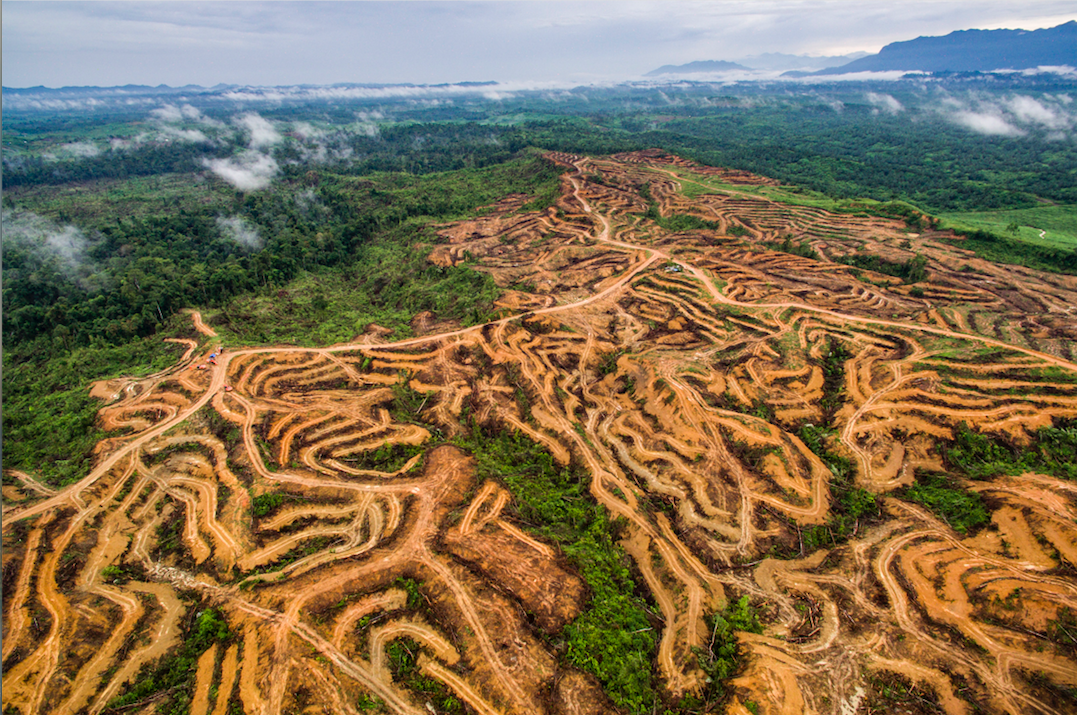For a Climate-Stable Future, We Need to Keep Forests Standing
Left intact, the world’s forests act like a huge carbon sink – one that doesn’t need our bioengineering, artificial sequestration, or complicated offset schemes to function. All they need is for us to not cut them down, and they’ll carry on, acting as one of the best defenses we have against devastating climate change.
But that last part – the not cutting tropical rainforests down part – has seemed hard for the multinational corporations amongst us to get right. Over the past few decades, rampant logging and land conversion – often for industrial-scale plantations of palm oil or large tree farms for pulp and paper production – have destroyed hundreds of thousands of acres of tropical rainforests.
A large portion of those rainforests used to stretch from coast to coast on the island countries of Indonesia and Malaysia, and what little remains of them is critical for both the global climate, as well as the thousands of Indigenous and local communities that rely on them for clean water and sustainable livelihoods, the hundreds of critical animal species like Sumatran orangutans and elephants that depend on their habitat for survival, and the countless plant species that make up their great biodiversity.
Rainforest Deforestation – What Can We Do?
Due to hard and strategic corporate campaigning, organizations like RAN and others have pressured some of the world’s worst rainforest destroyers to change their business models. Over the last few years, we’ve seen a sea change of “No Deforestation” commitments from companies in the palm oil and pulp and paper industries, committing to ending tropical rainforest clearance in their supply chains.
Even still, some companies have yet to make strong enough commitments to ending deforestation and we need your continued support in pressuring these laggard companies to get with the times.
For the last four years, RAN and a coalition of organizations representing hundreds of thousands of people around the world, have been calling on PepsiCo – the largest globally traded snackfood company in the world – to make sure the palm oil it sources is not associated deforestation, labor abuses, or human rights violations.
One thing you can do today to help end tropical rainforest deforestation? Help us keep the pressure on PepsiCo.
PepsiCo, your palm oil “progress” is a farce. The truth is that your company continues to make billions while rainforests fall and workers in your supply chain are exploited for Conflict Palm Oil. Instead of nice words, take real action to end the exploitation.
If you’re not on social media you can also call the company at 1 (800) 433-2652.
Rainforest Deforestation – What Can Companies Do?
Even once a company has committed to “No Deforestation” in its supply chain, it must ensure that it upholds its commitments. The corporate promise must be worth the paper it is printed on. Now, after the initial wave of company commitments, many are wondering what good are they?
Perhaps most importantly, any commitment must be implemented in an effective manner. The leading tool to put “No Deforestation” promises into practice is called the High Carbon Stock Approach (HCSA) – the first methodology that has been field tested and developed with a broad network of stakeholders. Perhaps most importantly, the HCSA respects local communities’ rights, as well as providing a process to determine what land needs to be set aside for conservation, and what land can be developed. Integrated with enhanced Free, Prior and Informed Consent (FPIC) practices, and respecting land use and livelihoods, the HCSA requires participatory, community-land use planning and management, so that local communities are ensured the final say when it comes to decisions about the protection of forests or agricultural development on their traditional or customary land.
Protecting Forests, Protecting Ourselves
A recent study found that protecting “high carbon” forests also protects the endangered species that depend on them – meaning that tools like that HCSA that identify and conserve forest areas containing large amounts of carbon, are beneficial for biodiversity conservation as well. A strong, vital forest provides myriad benefits to the plants and animals that share its ecosystem, to the local communities that rely on its clean drinking water, and ultimately, to all of us that share this Earth.
Forests fight climate change, and we fight for forests. Won’t you help us?
